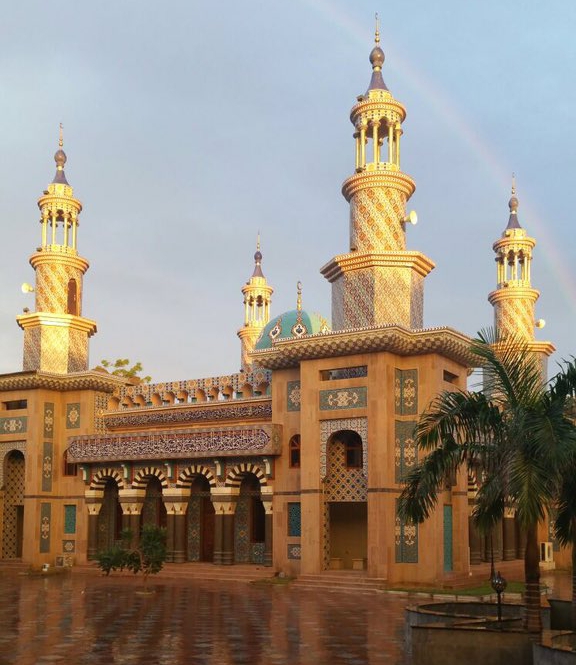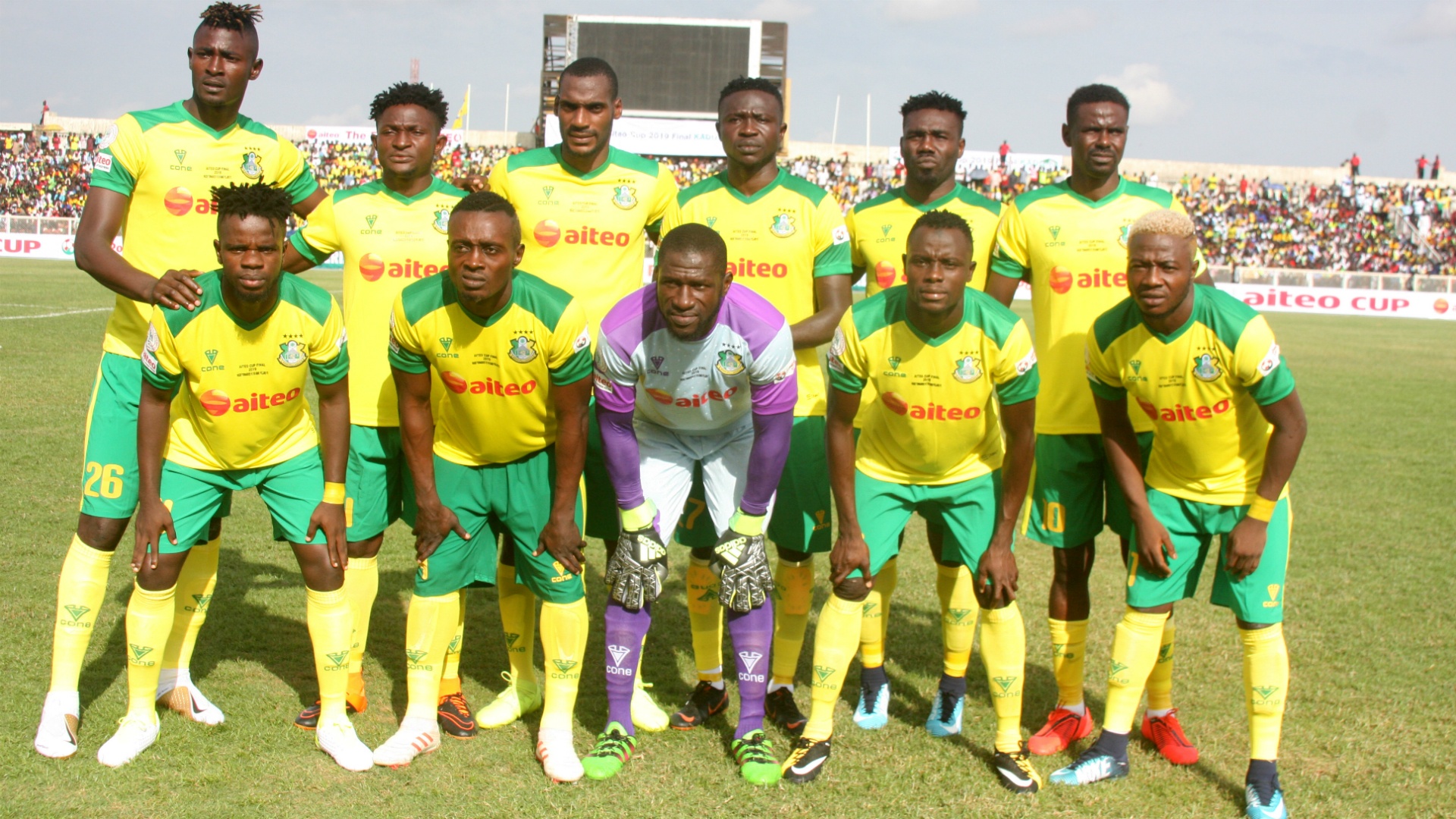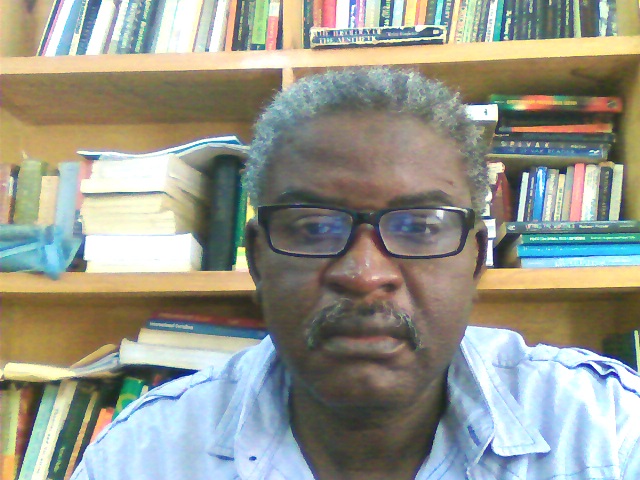Opinion
Umar Bin Al-Khattab’s leadership: A lesson to today’s leaders

By Imam Murtadha Gusau
In the Name of Allah, the Most Beneficent, the Most Merciful
All praise is due to Allah, the Lord of all creation, may Allah extol the mention of our noble Prophet Muhammad in the highest company of Angels, bless him and give him peace and security―and his family, his Companions and all those who follow him correctly and sincerely until the establishment of the Hour.
Dear brothers and sisters! Umar Bin Al-Khattab, the second Khalifah of Muslims following the death of Prophet Muhammad (Peace be upon him), is highly revered among Muslims not only for being a piousness and just nature, but also for being a brilliant leader and statesman.

A pioneering figure in the Islamic world, Umar was and will always be remembered, for his great contributions to the religion of Islam. Descriptions of his appearance suggest that he was a strong, fit, tall man, and the front part of his head was bald.
Before accepting Islam, he was one of the most rabid enemies of Prophet Muhammad (Peace be upon him). Umar acknowledged Prophet Muhammad as the Messenger of Allah after six years of his Prophecy, to become the 40th man to join the religion of Islam and became a senior companion of the Prophet.
When the name of Umar is mentioned, he is always described as Al-Faruk, or the distinguisher between right and wrong.
As a leader, Umar was known to be humble, aware of the significance and seriousness of his responsibility. At night, he was known for going around to inspect the conditions of people. Those night tours weren’t common before his reign, and weren’t done at the same pace even after his death.
His sense of responsibility and kindness also extended to animals, whom he valued because they are Allah’s creations. Umar is often quoted declaring that:
“If a mule stumbled in Iraq, he was responsible for not having the road paved.”
Dawud Ibn Ali quotes Umar as once saying:
“If a lost sheep under my care were to die on the banks of the Euphrates, I would expect Allah the Exalted to question me about it on the Day of Resurrection.”
And because under his leadership the Muslim world expanded to reach Persia, Syria and Egypt, Umar is seen as the architect of the Islamic Empire. As a statesman, he established a political structure to hold the vast Islamic state together.
He divided the state into provinces and appointed governors, whom he did not allow to exceed two years in power, out of fear it would influence their roles.
Among his numerous achievements as a leader, Umar decreed the Hijrah or Islamic calendar, which counts starting from the year Prophet Muhammad left Makkah to Madinah.
In 641, he established Baitul-mal, or the “House of Wealth”, the first financial institution in the Islamic state to overlook taxes and administrate the distributions of Zakah revenues for the public. He also provided stipends for poor Jews and Christians.
Umar valued individual freedoms and applied the principle of equality among Muslims and non-Muslims within the borders of the Islamic state.
It was narrated that Umar once heard that the son of Amr Bin As, a companion of the Prophet and the leader Umar appointed for Egypt, has abused and beat up a Coptic Christian.
Umar ordered the son of Amr be punished in public on the hands of the victim. He then was quoted telling both, the father and son:
“Since when have you turned people into slaves, whereas they are born free of their mothers?”
Umar was assassinated at the hands of a Persian slave, Piruz Nahavandi (also known as Abu Lu’ulu’u al-Majusi). It is said that Piruz attacked Umar while he was leading the morning prayers, fatally stabbing him in the belly and on the navel.
Umar succumbed to his wounds three days later.
All praise is due to Allah, Lord of the worlds. May the peace, blessings and salutations of Allah be upon our noble Messenger, Muhammad, and upon his family, his Companions and his true followers.
This piece was sent by Murtadha Muhammad Gusau, the Chief Imam of: Nagazi-Uvete Jumu’ah Mosque; and Late Alhaji Abdur-Rahman Okene Mosque, Okene, Kogi State, Nigeria. He can be reached via: gusauimam@gmail.com; or +2348038289761.

Opinion
Abdussamad Rabi’u pays tribute to his father Khalifa Isyaku Rabi’u

My Dear Khalifa
It has been seven years, yet it feels like yesterday since you departed. Our memories of you remain vivid, priceless, and are deeply rooted in our hearts. The moments we shared, your teachings and your selfless example continue to shape us daily, to the admiration of many.
Your legacy, especially your deep devotion to Islam and its propagation, still echoes across generations and geographies. Through your life of service, you inspired countless others to embrace kindness, humility, and compassion. You lived not just for yourself but in service to others, and this principle continues to guide our path.
In honour of your memory, we will remain steadfast in our commitment to selfless service. We will continue to support noble causes and charitable undertakings that reflect the values you lived by, regardless of race, gender, or background.

May the Almighty Allah, in His infinite mercy, keep granting you Al Jannah Firdaus. May your soul continue to rest in the eternal peace and light of His divine presence.
Abdul Samad Rabiu, CFR, CON
For the Family
08.05.2025.

Opinion
The need to restore the prestige of Kano Pillars FC

Isyaku Ibrahim
There is no doubt whenever you talk about Enyimba of Aba in Nigeria’s top flight who won the competition nine time, the next team that will come to your mind is Kano Pillars that lifted the trophy on four good occasions. But nowadays,it seems the Kano darling is losing its prestige, recognition and above all popularity in the local league.
This was as a result of lack of total commitment, determination, tenacity, patriotism,diligence and seriousness which the side was known for in the past.

To say the fact, the pyramid City lad was previously rated among the traditional teams in the top flight as they have established and tested players that would not disappoint their teeming fans no matter where they are playing.
It was based on this late Rashidi Yekini while watching the team at Adamasingba Stadium now Lekan Salami Stadium in Ibadan said if he was to play for a local team he would prefer to lace his boot for Kano Pillars ahead of others.
The reason he Said was simply due to excellent free flow football of the team but now it seems that has gone for bad.
When the club was established as early as 1990 among the objectives behind was to boost the name of the state through football and beside that win trophies with a view to competing favourably with others.
While those behind the idea should be commended to a large extent for their foresight in that respect in view of how the team is now a household name in the round leather game countrywide but there is the need for a collaborative effort with a view to normalising things in the ancient city side as the club has now stepped down from its aforementioned aims and objectives.
It is painful that the team’s main priority nowadays was not to lift the league as the case was previously but to survive relegation which was baseless,laughable and nothing to write home about considering their past experience particularly when they were based at Sabongari Stadium.
Definitely,this season is almost over as Remo Stars are as good as being crowned the winners of the event
The best option for Sai Masu Gida is to start early preparation for the upcoming season through putting their house in order aimed at restoring their winning culture as the teeming fans are tired of flimsy excuses on the reason behind their lack lustre performance year in year out.
Honestly, what they are basically hoping for is to see the club matches theory with practice through grabbing the trophy or at least earning one of the three continental tickets in the country.
optimistically this is achievable with the full support of Governor Abba Kabir Yusuf coupled with that of his laborious and submissive Deputy Comrade Aminu Abdulsalam, good management, superb technical crew and the support of ardent fans who are always with the side in either thick or thin.
Ibrahim is a Director Public Enlightenment at Kano State Ministry of Special Duties.

Opinion
In defence of Prof Abdalla Uba Adamu’s beautiful quip on Kano – IBK

Prof. Ibrahim Bello-Kano (IBK)
Double Professor Uba Abdallah Adamu has angered many non-Kano people resident in Kano by his famous, widely circulated quip, an aphoristic description of Kano in which says the anyone tired of (living in) Kano is tired of life. Prof Adamu’s appraisal of Kano is based on a sound premise and a powerful emotional logic. Prof. Adamu’s comment has a powerful pedigree. On the arguments of the highly acclaimed French sociologist and space theorist, Henri Lefebre in “The Production of Space” (1974), it can be shown that Kano, especially the city and the metropolitan area, has three characteristics, typical of the greatest cities in the world since Antiquity:
1. It is a conceived space (an urban area, complete with a series of interlacing and interloping and interlocking urban designs since the 9th century). Kano was already a city and an urban space well before 1903. It’s one of the oldest urban areas in the Sudan.

2. It is a lived space, complete with the everyday experiences of its inhabitants and their emotional identification with it. Hence the many “quarters of the city”— from Alkantara, Alfindiki, Ayagi, to Mubi and Gwangwazo and beyond those.
3. Kano is also a practiced/practised space, with its inhabitants, visitors, and emigré population working to “practice up” the city in their daily lived experiences and within its urban and emotional spaces. That’s the truth of Prof. Abdallah Uba Adamu’s hyperbolic reference to Kano as a barometer of happiness or depression.
Prof Adamu is also correct in that most immigrants to the city never leave it, even if their last name may indicate other towns or cities. Already, Kano is one of the most truly cosmopolitan cities in Nigeria, surpassed only by New York, London, and Abidjan. In 1958, almost a decade before Lefebre’s book, the philosopher of science and urban studies, Gaston Bachelard published “The Poetics of Space” in which he argues that to live, or to choose to live, in a place, say the Kano metropolis, is already to enact an emotional act, and an existential event, in and for which Kano is already a resonant space of intimacy, or an intimate place of lived subjectivity. This is the case because one cannot live in Kano, even for a brief period, without (seeking to) creating a home, a nest, and an intimate space of “Kano beingness” or a Kano-based “being- in-the world”. That’s why Kano evokes and resonates with a strong emotional identification with it. When I was about 8 years old, I was told, on visiting the Dala Hill, that God had planned to create a holy city in Kano, but a dog urinated on the hallowed ground, and that’s how the divine plan was moved elsewhere. Of course, that story is clearly apocryphal, yet it shows how the Kano people are intensely proud of their places and spaces. So, Prof. Abdullah Uba Adamu’s hyperbolic and surreal description of Kano is essentially correct and pleasingly poignant. Many emigré groups are unhappy with his remarks, but if you live in a place, earn a living in it, or draw opportunities of all kinds from it, then you have got to love Kano, the most romantic of cities, a city full of dreams, aspirations, emotional highs and lows, and learn to identify with its fortunes. Kano, the city of gold and piety, recalcitrance and hope, modern politics and ideological contestations; the city of majestic royalty; the city of women and cars, as Shata once described it. Kano… the great Entreport. Kano, your name will endure through the ages. Cheers.
Ibrahim Bello-Kano (IBK) is a Professor of English at Bayero University, Kano.














